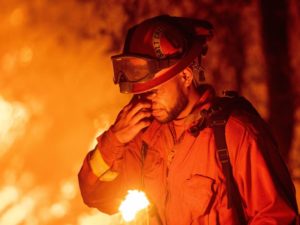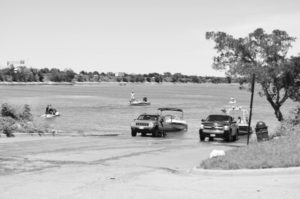
By Naïma Hill
For seven days now, a killer whale off the coast of Washington has been carrying her dead baby. My heart breaks along with everyone else around the world watching. On July 24 the mother gave birth to her baby who lived for 30 minutes. The baby was a southern orca endangered species, which has not had a baby orca survive in three years. The empathy and relatability we all feel should push us to do better for our world.
The lack of the orca’s main prey, Chinook salmon, is cause for their decline. Salmon are on the decline from our human actions — overfishing, habitat alteration (dams) and the influence of farmed fish. Chinook salmon are often “King” or “Tyee” salmon in grocery stores and restaurants. If you eat seafood, make sure you’re using the Seafood Watch app to make smart sustainable decisions.
Dams provide power to thousands of residents across our country. The dams create reservoirs used for recreation and our unhealthy addiction to water use. Our hearts mourn with this mom. Now let’s do better by her.
If your empathy isn’t fired up by the mother orca, are the horrid fires around the world getting to you yet? The Carr wildfire in California has burned 98,724 acres and is only 20 percent contained. The fire is so hot and strong it’s creating its own pyrocumulus clouds, which can act as thunderstorms. Craziness ensues. In Texas, Colorado and all across the world, fires are raging.
More than 90 percent of wildfires are caused by humans. Think cigarette butts, unattended fires, fireworks, etc. Climate change is increasing the risk of large damaging wildfires. More fuel, hotter, drier temperatures and high winds make wildfire susceptible areas hotspots for damage. The more carbon dioxide and other greenhouse gases we put into the atmosphere, the more our wildfire season will explode. Next up is hurricane season, which usually peaks in September around the world. Ugh.
It’s not getting better, it’s getting worse. We need to take action.
I’m glad to hear the ridiculous ocean-sized pool won’t be built in Rowlett, on the shores of Lake Ray Hubbard. I have a genius idea — clean up the lake and use it. But that whole mess is a political nightmare. There are things you can do right now.
The mother orca links directly to the food we buy. Are you buying locally grown food, or sustainably grown food? I, too struggle with the Saturday shopping.
If you can’t make it to a local farmer’s market, buy quality products at the grocery store. Don’t think you can afford organic or whole foods? Go to Aldi. Now.
Their prices are affordable, selection is great, and commitment to the environment is higher than most grocery chains. Or check out the discount grocery stores — Grocery Clearance Center and Town Talk Foods in Fort Worth — for incredible deals on quality products.
Be inspired by the sustainability movement in our area. I recently came across a woman entrepreneur who created and just launched the app Rent My Wardrobe in our Dallas area. Instead of buying clothes for every occasion, you can expand your “friend” network and borrow from your neighbors and/or rent out your own wardrobe. Save money and the environment! I downloaded the app, and it’s well designed, easy to navigate and now just needs more people to interact on it. Prom dresses, wedding dresses, wedding guest outfits, daily styles, shoes, bags and more can be rented.
I can hardly stand thinking about the moment the mother orca drops her dead baby. We need her healthy in the future — she’s still of breeding age and an important member of her pod.
Her mourning was felt around the world — because we really are all part of the same pod.

